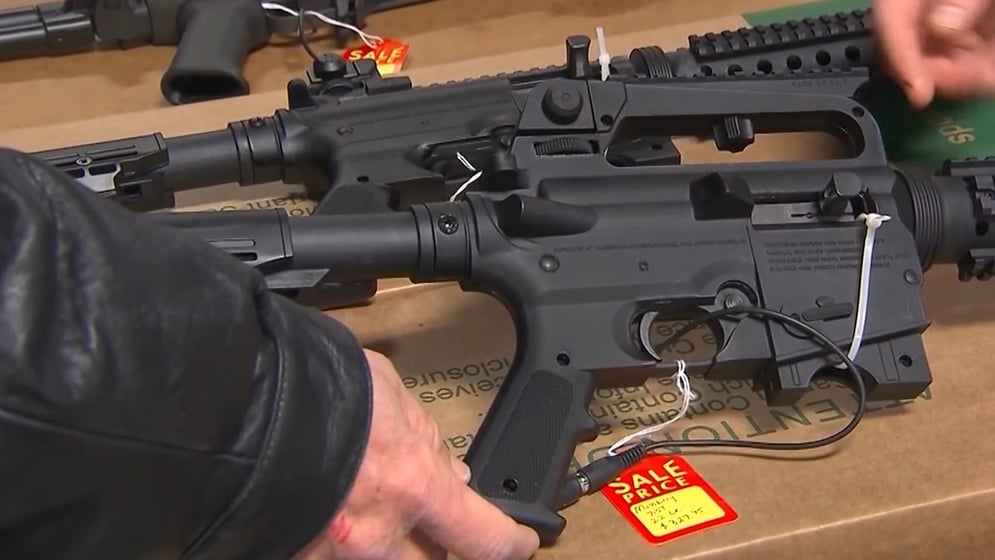The state of Pennsylvania finds itself at a critical juncture in its ongoing battle to address the proliferation of untraceable firearms, commonly referred to as “ghost guns.” These homemade weapons, devoid of serial numbers and traditional regulatory oversight, represent a significant loophole in existing gun control measures. In response to this emerging threat, the Pennsylvania House of Representatives recently took a decisive step by passing legislation aimed at banning the purchase, sale, and production of ghost gun components. This article delves into the multifaceted issue of ghost guns, examining their origins, impact, and the rationale behind the proposed prohibition.
Understanding Ghost Guns
Ghost guns, by definition, are firearms that are assembled from kits or individual components, often purchased online or through unregulated channels. These weapons lack serial numbers, making them virtually untraceable by law enforcement agencies. The rise of ghost guns can be attributed to advances in technology and the availability of DIY kits, allowing individuals to circumvent traditional firearm regulations with relative ease. Despite their homemade nature, ghost guns are capable of inflicting significant harm and pose a formidable challenge to public safety efforts.
The Case for Prohibition
The proposed ban on ghost guns in Pennsylvania stems from legitimate concerns regarding public safety and law enforcement capabilities. These untraceable firearms present a unique set of challenges, as they are frequently used in criminal activities while evading detection and accountability. By prohibiting the purchase, sale, and production of ghost gun components, lawmakers seek to close this dangerous loophole and prevent these weapons from falling into the wrong hands. Moreover, the ban serves as a proactive measure to safeguard communities and uphold the integrity of firearm regulations.
Legislative Framework
The legislation passed by the Pennsylvania House of Representatives represents a significant step towards addressing the threat posed by ghost guns. The proposed ban encompasses a comprehensive set of measures aimed at curbing the proliferation of untraceable firearms within the state. Key provisions include criminalizing the sale and possession of ghost gun components, imposing strict penalties for violations, and enhancing regulatory oversight to prevent circumvention of the law. By enacting these measures, lawmakers aim to send a clear message that ghost guns have no place in Pennsylvania’s communities.
Controversies and Opposition
Despite its noble intentions, the proposed ban on ghost guns has faced criticism and opposition from various quarters. Gun rights advocates argue that such measures infringe upon Second Amendment rights and impose undue restrictions on law-abiding citizens. Industry groups express concerns about the potential impact on businesses that manufacture and sell firearm components legally. Moreover, legal and constitutional challenges have been raised regarding the enforceability and scope of the proposed ban. These controversies underscore the complex nature of the issue and highlight the need for careful deliberation and dialogue.
Impact on Crime and Public Safety
One of the central arguments in favor of banning ghost guns is its potential impact on reducing firearm-related crime and enhancing public safety. Untraceable firearms have been linked to a myriad of criminal activities, including homicides, armed robberies, and drug trafficking. By restricting access to ghost guns, lawmakers hope to disrupt criminal networks and prevent the proliferation of illegal firearms. Moreover, empirical evidence from jurisdictions with similar bans suggests that prohibiting ghost guns can lead to a decline in firearm-related incidents and contribute to overall community safety.
Balancing Rights and Regulation
The debate surrounding ghost guns raises fundamental questions about the balance between individual rights and public safety imperatives. While the Second Amendment guarantees the right to bear arms, it is subject to reasonable regulation in the interest of public welfare. The proposed ban on ghost guns represents a targeted effort to address a specific threat to public safety, rather than an outright infringement on gun rights. By striking a balance between rights and regulation, policymakers seek to reconcile competing interests and protect the well-being of all citizens.
Future Outlook and Policy Recommendations
As the proposed ban on ghost guns awaits consideration in the Pennsylvania Senate, the future outlook remains uncertain. While there is bipartisan support for enhancing gun safety measures, political dynamics and procedural hurdles may impede its passage into law. Moving forward, policymakers must engage in constructive dialogue and collaboration to address the complexities of the ghost gun issue. Moreover, stakeholders across sectors should work together to develop comprehensive solutions that prioritize public safety while respecting constitutional rights. By staying vigilant and proactive, Pennsylvania can lead the way in combating the threat posed by ghost guns and ensuring the safety and security of its residents.
The rise of ghost guns presents a formidable challenge to public safety and law enforcement efforts in Pennsylvania. By passing legislation to ban the purchase, sale, and production of ghost gun components, lawmakers have taken a proactive step towards addressing this pressing issue. However, challenges remain in navigating legal, political, and practical considerations surrounding the proposed ban. Moving forward, it is imperative for stakeholders to engage in meaningful dialogue, explore innovative solutions, and work collaboratively to safeguard communities from the dangers of untraceable firearms. With concerted effort and commitment, Pennsylvania can emerge as a leader in addressing the scourge of ghost guns and upholding the principles of safety, security, and justice for all.
